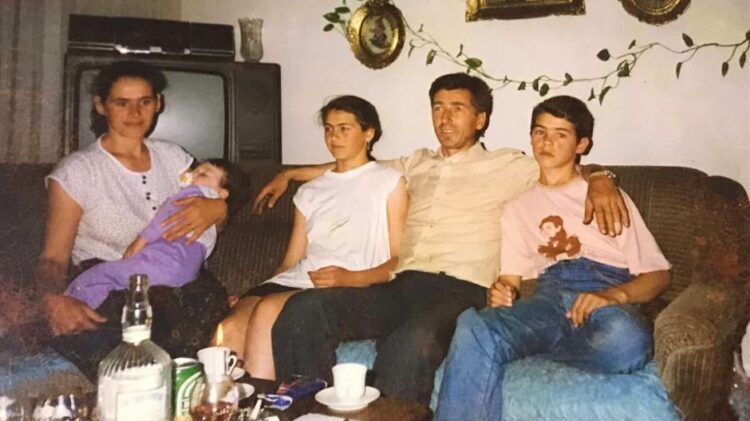
Mehida Mustafic returned from The Netherlands to Srebrenica years ago after forensic experts notified her that the remains of her husband Rizo werejavascript:WebForm_DoPostBackWithOptions(new WebForm_PostBackOptions("ctl00$ctl00$ctl00$ContentPlaceHolder1$BodyPlaceHolder$ContentPlaceHolder1$saveButton", "", true, "", "", false, true)) found in a mass grave.
The last time she saw him he told her to take the children out of the country. He came back to her in a dream and asked her: “what are you waiting for?
”That’s when she took their three children, Damir, 16, Alma, 14 and Mirsada, 2, and left.
Two decades later she returned. They had found Rizo’s remains in a village near Vlasenica and Mehida interpreted this as a call to come home.
“I just wanted to come back and somehow … part with him,” she said.
But the physical split with Rizo, his funeral, she could not bear. She tried but ended up in hospital.
However, she found consolation.
“Every morning, at early dawn, a bird – I never figured out which kind but it’s no bigger than ten centimetres and with all kinds of colours – peeps so sweetly, exactly at that spot where I rest my head. It knocks on the window and when I get up, it flies into the mountains,” she said.
“But I know it is still out there somewhere. I have built my Rizo into that bird. I have imagined that he is following me. If those souls exist, then he is following me and I have returned. That makes me want to live,” she said.
Mehida and her son returned but her daughter Alma stayed in The Netherlands with her own family.
Seven years ago she won a lawsuit against that country because Rizo worked for the UN Dutch battalion that failed to protect Srebrenica during the war.
She is a professor at the University in Utrecht but visits Srebrenica often.
They all maintain the memory of Srebrenica and try to spread the word about it worldwide and this way prevent eventual future genocides.
Alma has produced a theatre play with Dutch directors about Srebrenica and they performed it in nearly 20 Dutch cities.
“Eli Wiesel, the man who survived the Holocaust and received, I think, the Nobel Prize … said once that when one genocide is forgotten, another is starting,” Alma concluded.




